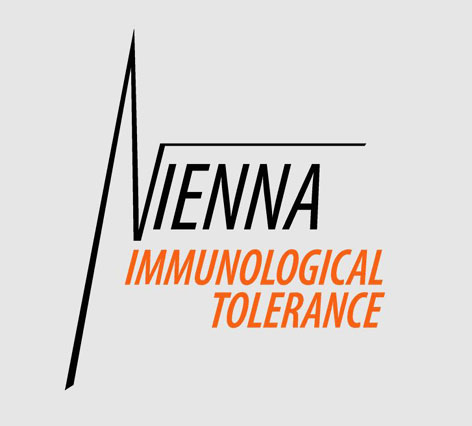
MECHANISMS OF ESTABLISHMENT AND MAINTENANCE OF IMMUNOLOGICAL TOLERANCE
SFB-F23 A SPEZIALFORSCHUNGSBEREICH FUNFED BY THE FWF
 |
MECHANISMS OF ESTABLISHMENT AND MAINTENANCE OF IMMUNOLOGICAL TOLERANCESFB-F23 A SPEZIALFORSCHUNGSBEREICH FUNFED BY THE FWF |
MEMBERS Wilfried Ellmeier |
Wilfried Ellmeier
Institute of Immunology
OE Clinical Institute of Hygiene and Medical Microbiology
Medical University of Vienna
Vienna Competence Center
Lazarettgasse 19
1090 Wien
AUSTRIA

Tel.: +43-1-40160-65003
Fax: +43-1-40160-965006
wilfried.ellmeier@meduniwien.ac.at
http://www.meduniwien.ac.at/immunologie/ellmeier
SFB co-workers: Nicole Boucheron (postdoctoral fellow); Julia Raberger (PhD student)
Several processes control that T lymphocytes do not attack the own organism. Self-reactive T cells are eliminated in the thymus by negative selection (central tolerance). Those T cells that escape negative selection are kept under control by peripheral tolerance mechanisms, such as by the activity of so-called regulatory T cells (suppressor T cells) or by T cell-intrinsic mechanisms (ignorance, anergy, etc.). Furthermore, negative signaling pathways within T cells have to ensure the proper down-modulation of the T cell response upon activation, an additional important T cell-intrinsic regulatory mechanism to avoid uncontrolled T cell activation and the potential development of autoimmunity.
With our SFB project we are proposing to investigate some of these processes in more detail. In particular, we will perform studies on the role of Tec family kinases in T cells during TCR activation and will also investigate whether Tec family kinases play a role in the down-regulation of the T cell response.